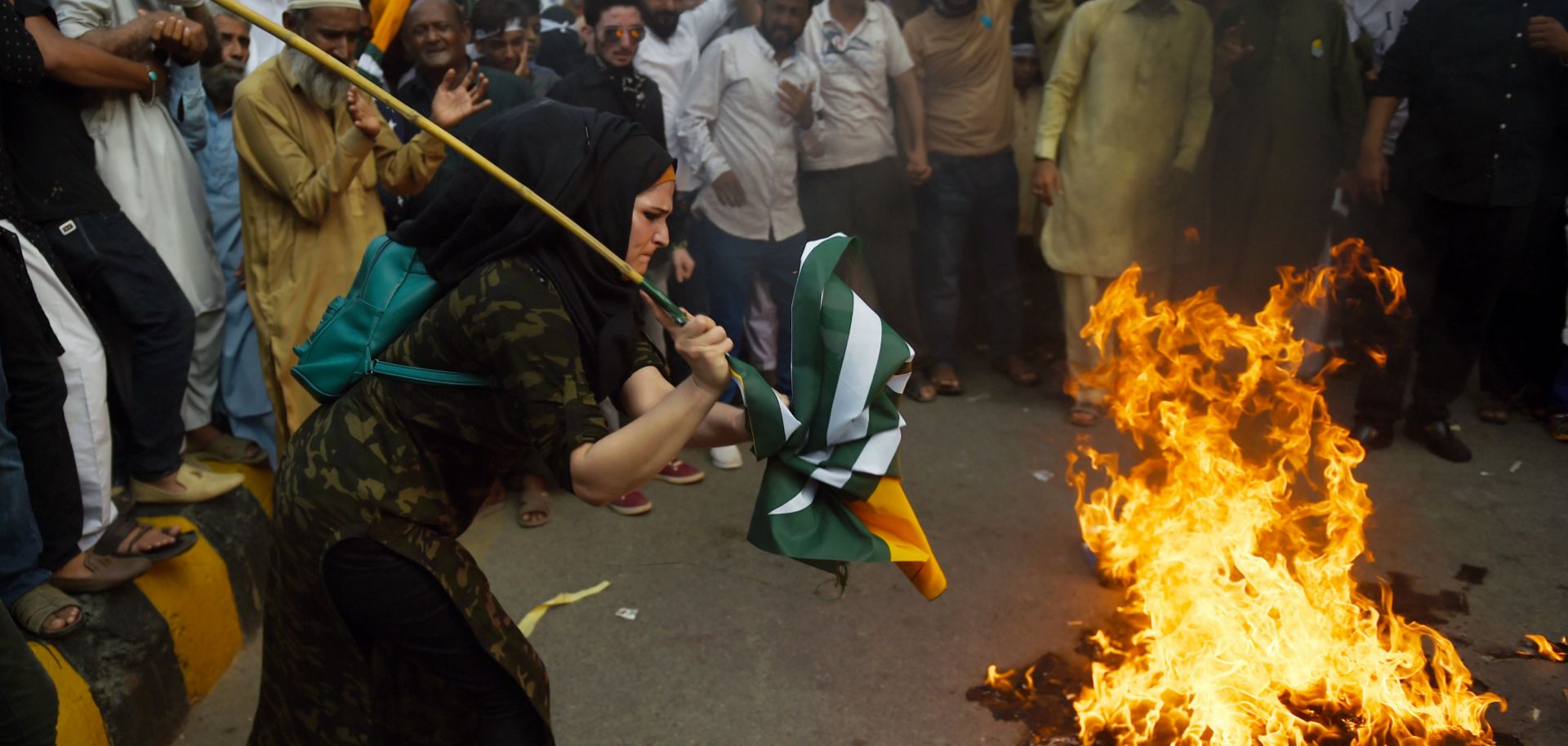COLUMNS
How an Indian Kashmir Fits Into Modi's Grand Plan

Aug 29, 2019 | 09:00 GMT

Jammu and Kashmir is in the midst of a seismic political shift after New Delhi announced it was stripping the state of its autonomy and splitting it into two centrally administered territories.
(RIZWAN TABASSUM/AFP/Getty Images)
Highlights
- The growing political presence of India's ruling Bharatiya Janata Party (BJP) in Kashmir enabled Prime Minister Narendra Modi to finally absorb the autonomous territory after nearly seven decades.
- The need to distract voters from India's slowing economy plus fears that the pending U.S. exit from Afghanistan will eventually bolster Pakistan's regional power likely prompted Modi's decision.
- In the long-term, Modi will encourage the migration of non-Kashmiri Hindus to the region as part of the BJP's efforts to advance national unity and strengthen India's control over the state.
- But an increasing involvement of locals in the insurgency in Kashmir could thwart these plans, and will remain the likeliest cause of future conflict between India and Pakistan.
Subscribe Now
SubscribeAlready have an account?
